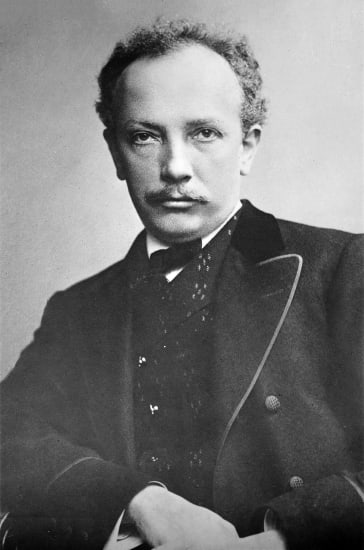Prices
Show / Event
Venue
Experience
No result. Clear filters or select a larger calendar range.
No show today.
Richard Strauss Composer

Biography
Artistic director of the Vienna State Opera from 1919 to 1925, Richard Strauss was one of the most famous conductors of his time, an eminent interpreter of his own works, but also of the operas of Mozart and Wagner. His stylistic and aesthetic importance was considerable. Born in Munich in 1864, the son of a famous Munich horn player and musical prodigy (he was composing by the age of six and conducting an orchestra by the age of nine), in 1884 he met the conductor Hans von Bülow, who invited him the following year to become second conductor at the Meiningen Opera. He held a number of positions (Director of Court Music in Munich, Assistant Court Kapellmeister in Weimar, Principal Conductor of the Munich Opera, etc.), before succeeding von Bülow at the helm of the Berlin Philharmonic Orchestra. In 1894, he conducted Tannhäuser in Bayreuth.
As a composer, he first established his reputation with great symphonic poems such as Don Juan, Death and Transfiguration, Till the Mischievous, Thus Spoke Zarathustra, Don Quixote and A Hero's Life. His first operas, Guntram and Feuersnot, strongly influenced by the music of Wagner, met with little success, but Salome, based on Oscar Wilde's play, brought him fame in 1905 as much for the innovative nature of the music as for the sulphurous subject matter. Elektra, in 1909, marked the beginning of a long collaboration with the Austrian poet Hugo von Hofmannsthal, and displayed a violence rarely seen in opera.
With Le Chevalier à la rose (1911), Strauss seems to have mellowed, returning to the Viennese tradition of character opera. This was followed by Ariane à Naxos (1912), La Femme sans ombre (1919), Intermezzo (1924), Hélène d'Égypte (1928), Arabella (1933), La Femme silencieuse (1935), Friedenstag (1938), Daphné (1938), L'Amour de Danaé (1938-1940). In his last opera, Capriccio, composed in 1942 to a libretto he wrote himself in collaboration with his friend the conductor Clemens Krauss, he succeeded, at almost 80 years of age, in surpassing himself. A few months before his death, he composed the Four Last Lieder for soprano and orchestra. He died in Garmisch-Partenkirchen in 1949.
Currently in
- Palais Garnier
- on 22 March 2026 at 12 pm















